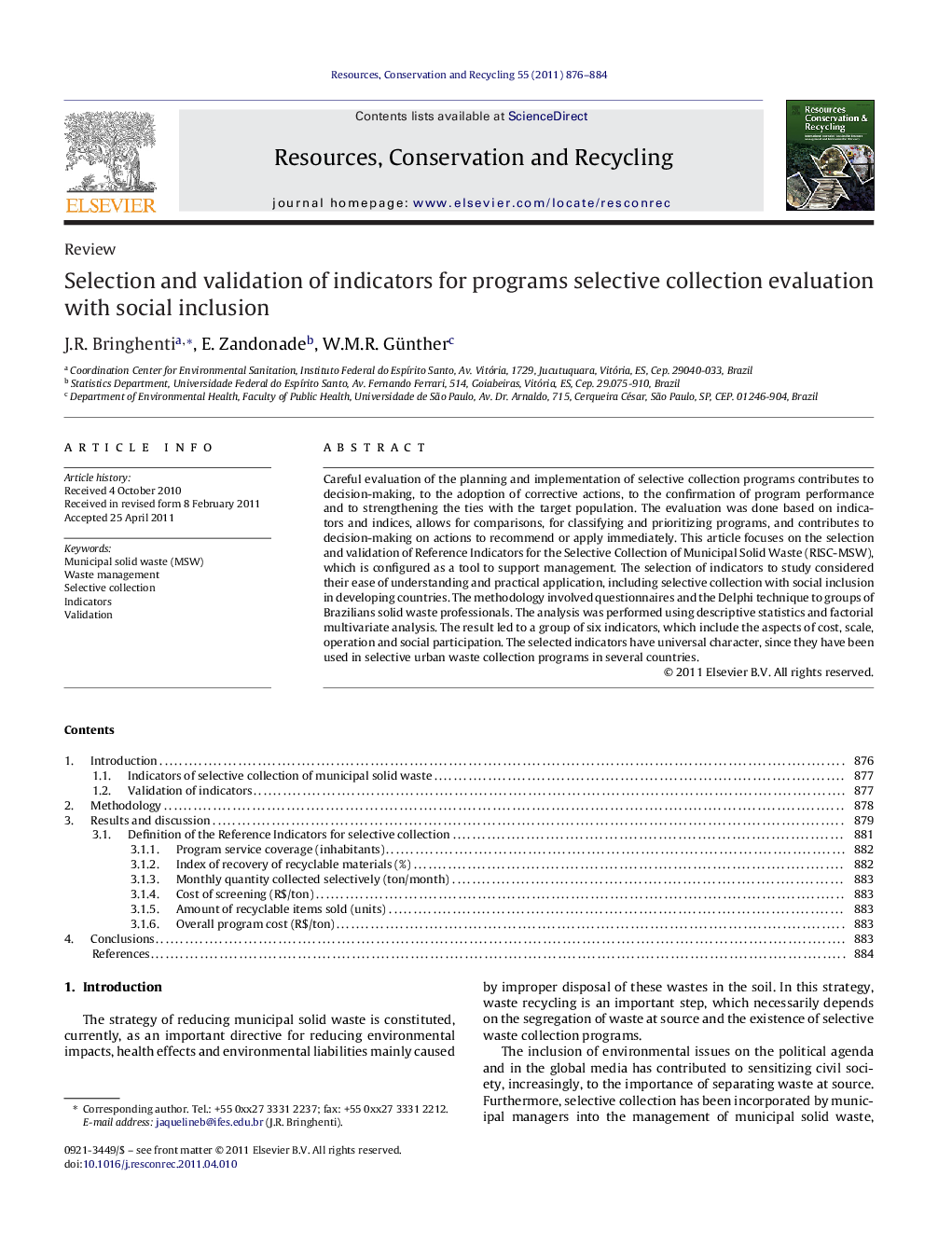| Article ID | Journal | Published Year | Pages | File Type |
|---|---|---|---|---|
| 1063441 | Resources, Conservation and Recycling | 2011 | 9 Pages |
Careful evaluation of the planning and implementation of selective collection programs contributes to decision-making, to the adoption of corrective actions, to the confirmation of program performance and to strengthening the ties with the target population. The evaluation was done based on indicators and indices, allows for comparisons, for classifying and prioritizing programs, and contributes to decision-making on actions to recommend or apply immediately. This article focuses on the selection and validation of Reference Indicators for the Selective Collection of Municipal Solid Waste (RISC-MSW), which is configured as a tool to support management. The selection of indicators to study considered their ease of understanding and practical application, including selective collection with social inclusion in developing countries. The methodology involved questionnaires and the Delphi technique to groups of Brazilians solid waste professionals. The analysis was performed using descriptive statistics and factorial multivariate analysis. The result led to a group of six indicators, which include the aspects of cost, scale, operation and social participation. The selected indicators have universal character, since they have been used in selective urban waste collection programs in several countries.
► Selective Waste Collection program evaluation is necessary for optimising performance. ► Study focus is on Selection and Validation of Reference Indicators for RISC-MSW. ► Data from Brazilian solid waste professionals using questionaries and Delphi technique. ► Analysis using descriptive statistics and factoral multivariate analysis. ► Results; six valid universal indicators: cost, scale, operatin and social inclusion.
